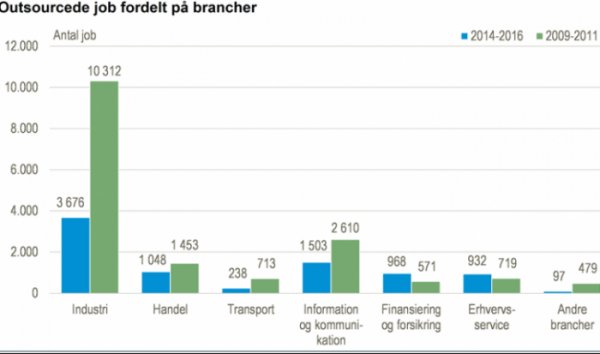According to new figures from the national statistics keepers, Danmarks Statistik, far fewer Danish jobs are being outsourced abroad compared to just a few short years ago.
The figures showed that 8,500 Danish jobs were outsourced abroad in 2014-2016 – close to half of the 16,900 jobs that were outsourced in 2009-2011.
“It’s clearly a result of Danish companies being successful in their attempt to become more competitive,” said Morten Granzau, the chief economist of the confederation for Danish industry, Dansk Industri (DI).
READ MORE: Danish national bank to outsource currency production
Finance anomaly
Overall, 12 percent of Danish companies with 50 or more employees outsourced in 2014-2016, while of the 8,500 jobs that were outsourced, 26 percent were highly-qualified jobs.
The industrial sector accounted for the highest portion of outsourced jobs with 3,676, followed by information and communication (2,610) and trade (1,048). Interestingly, finance and insurance (968) and business services (932) were the only two sectors that outsourced more compared to 2009-2011.
According to Danmarks Statistik, lower wage costs are the primary motive for international outsourcing – 71 percent of companies with 50 or more employees responded in a survey that it was an ‘important’ or ‘very important’ reason for doing so.















